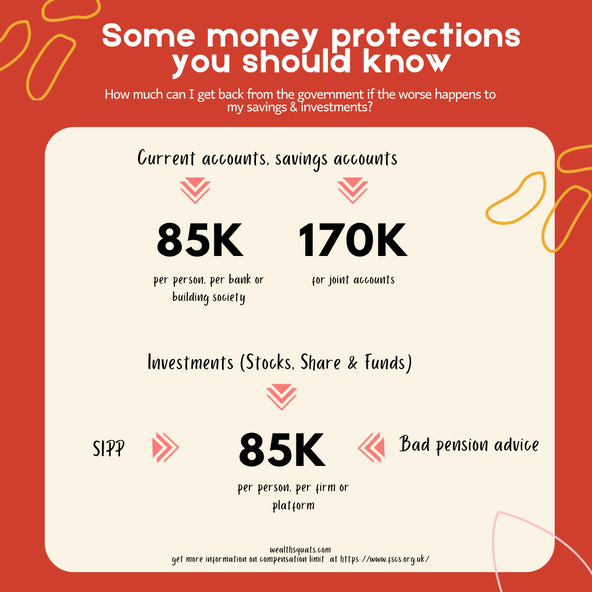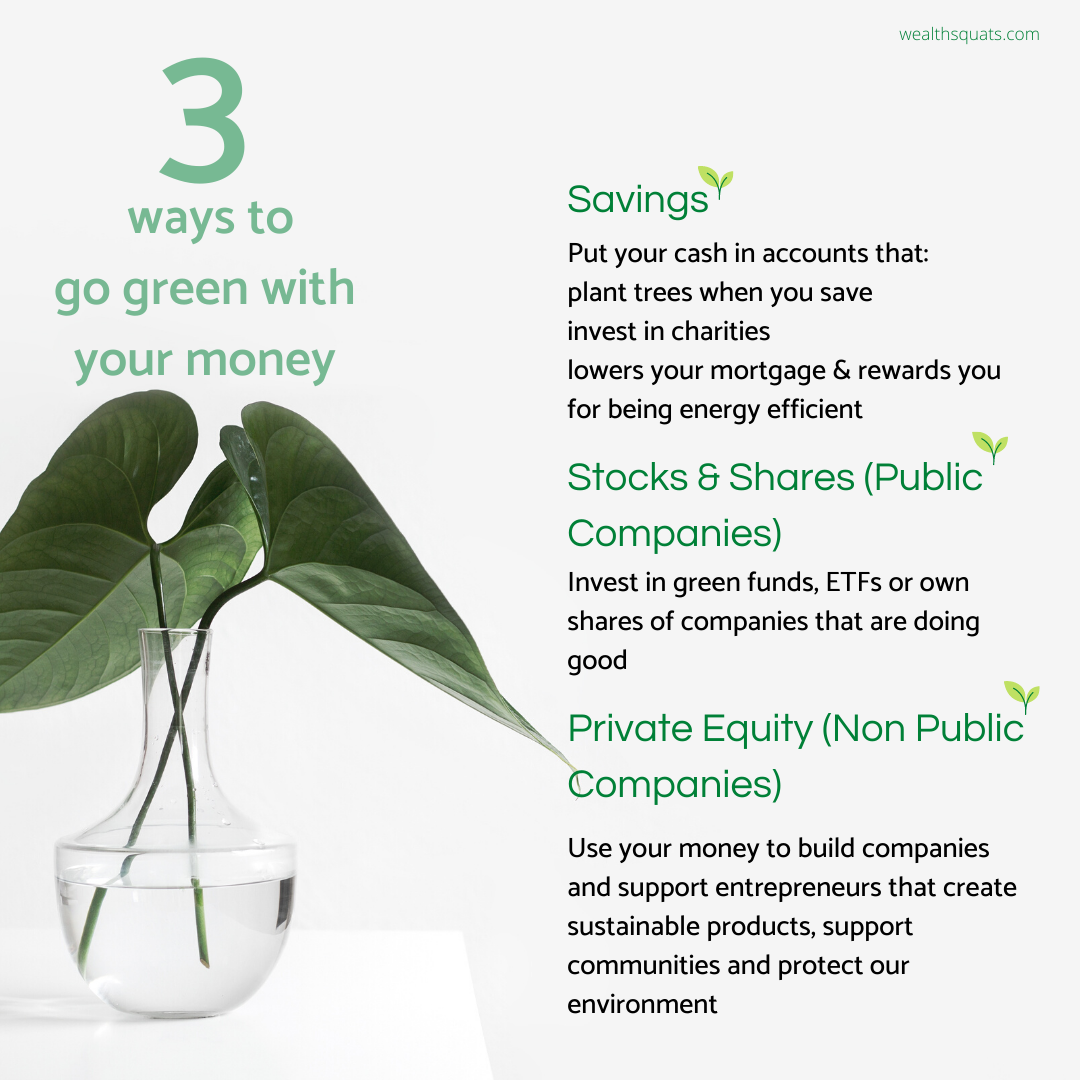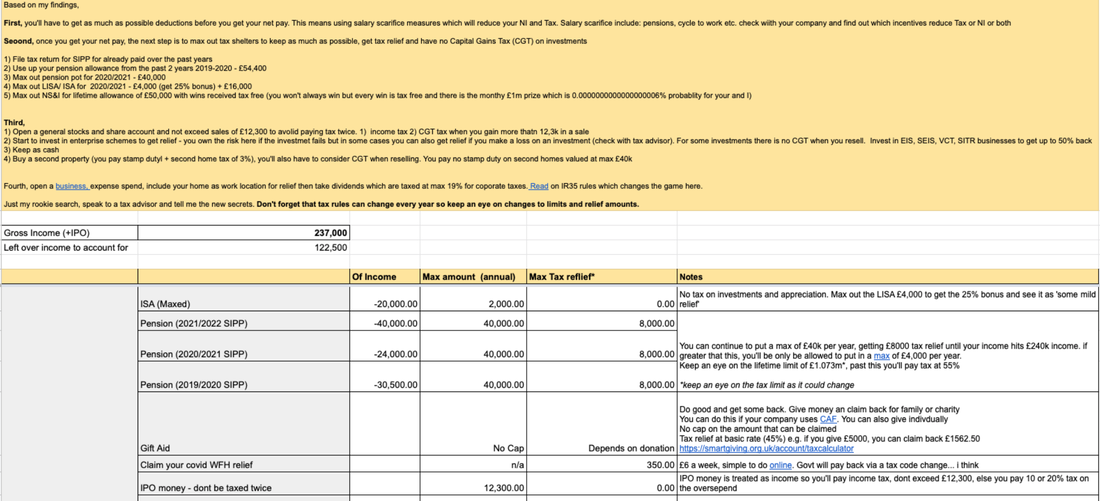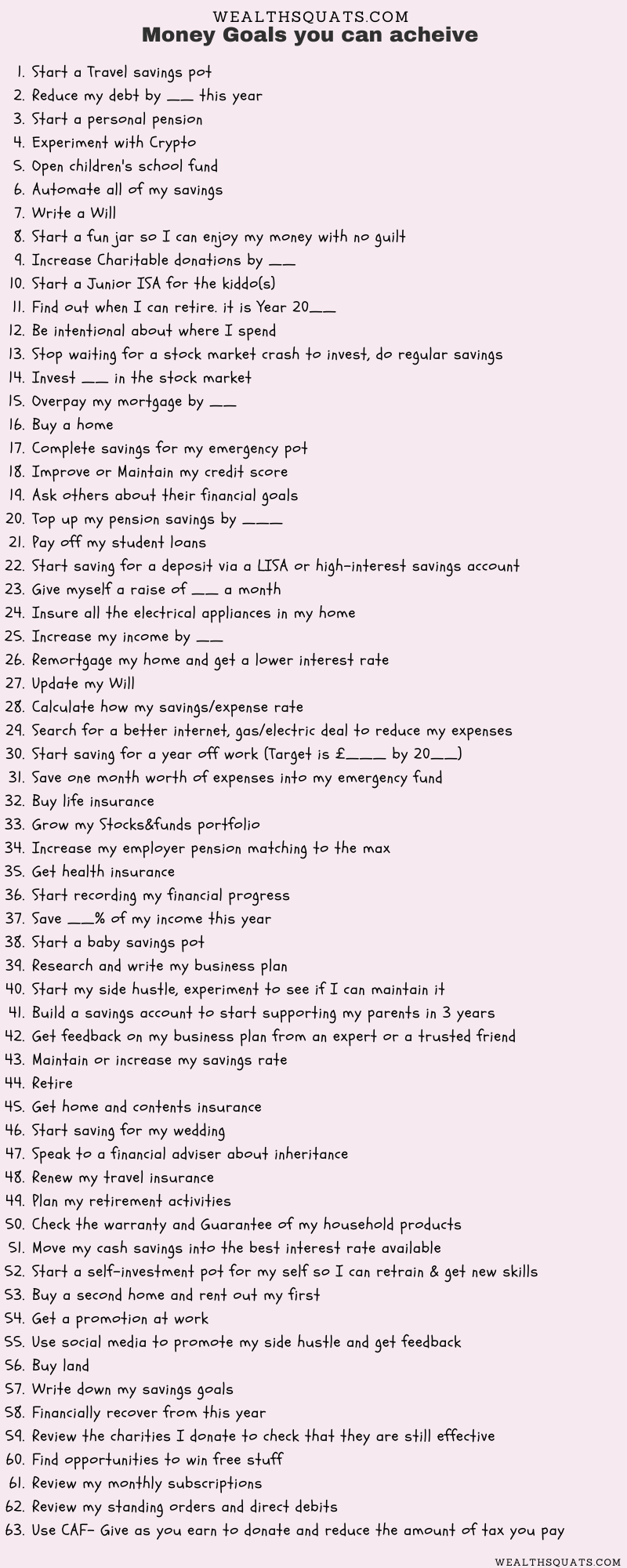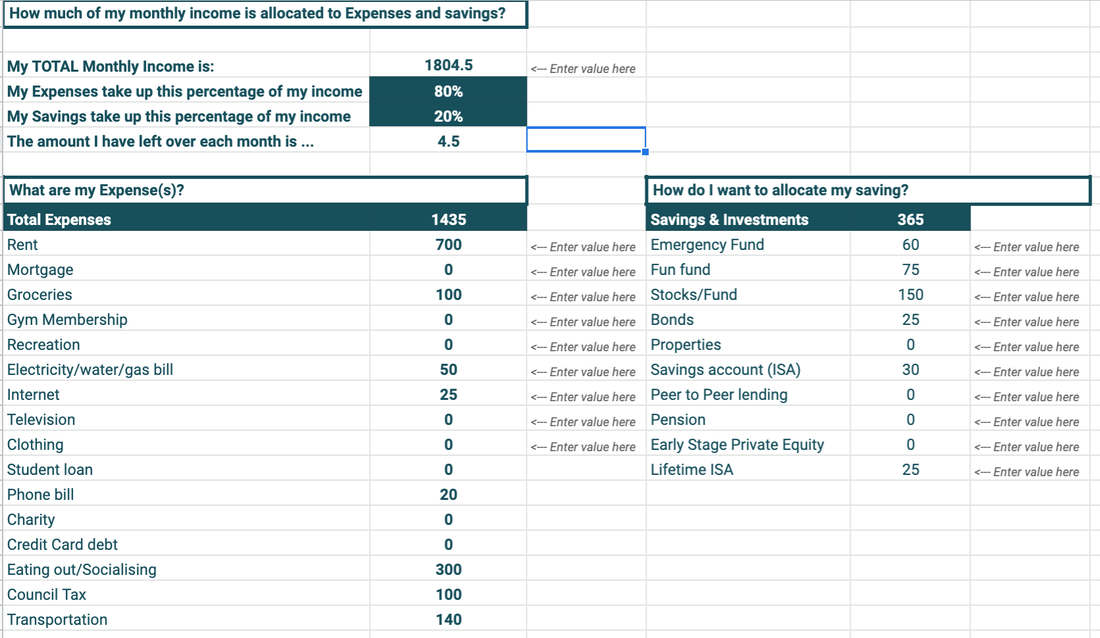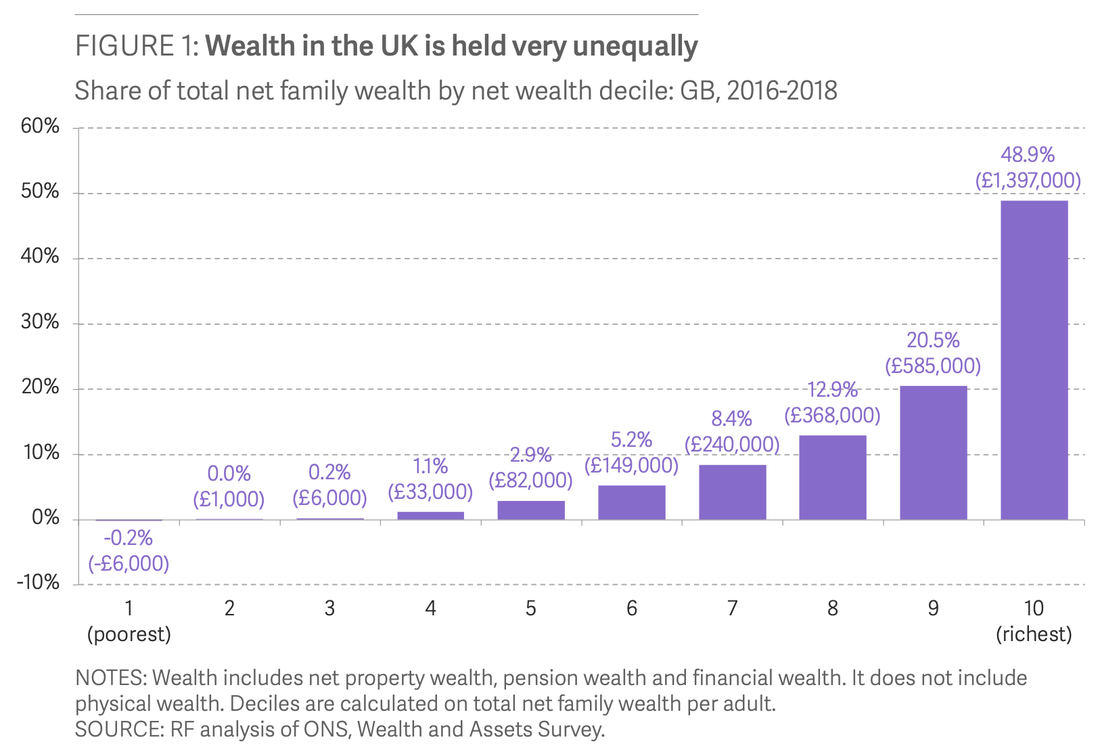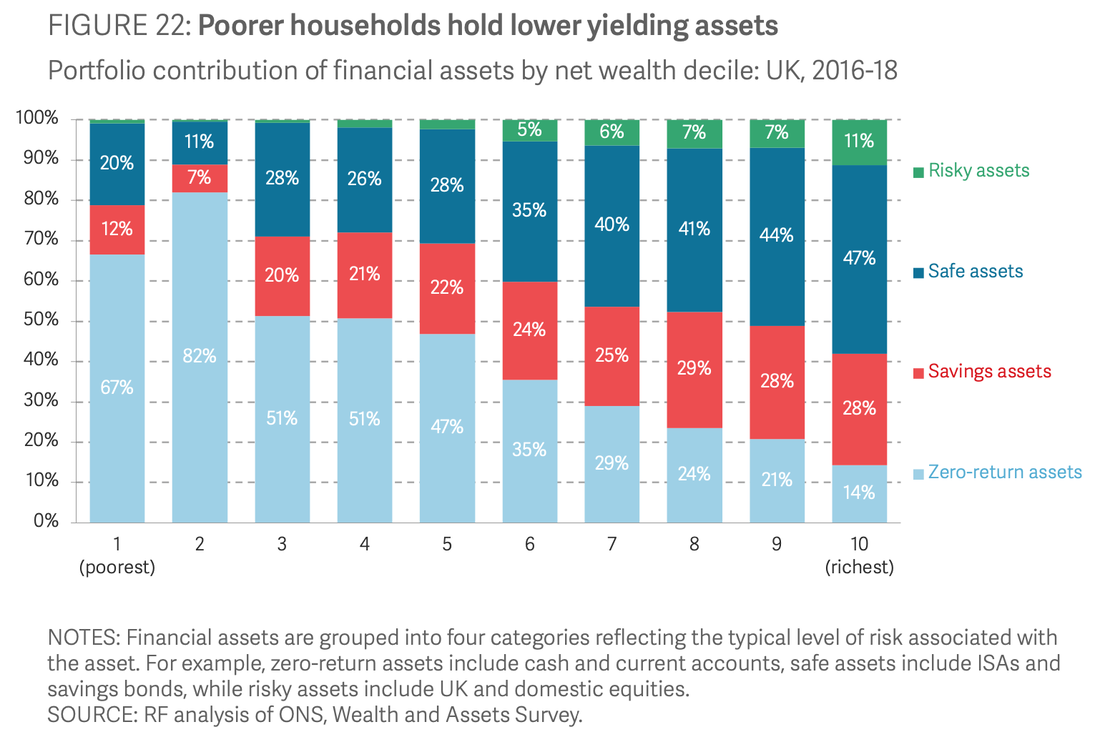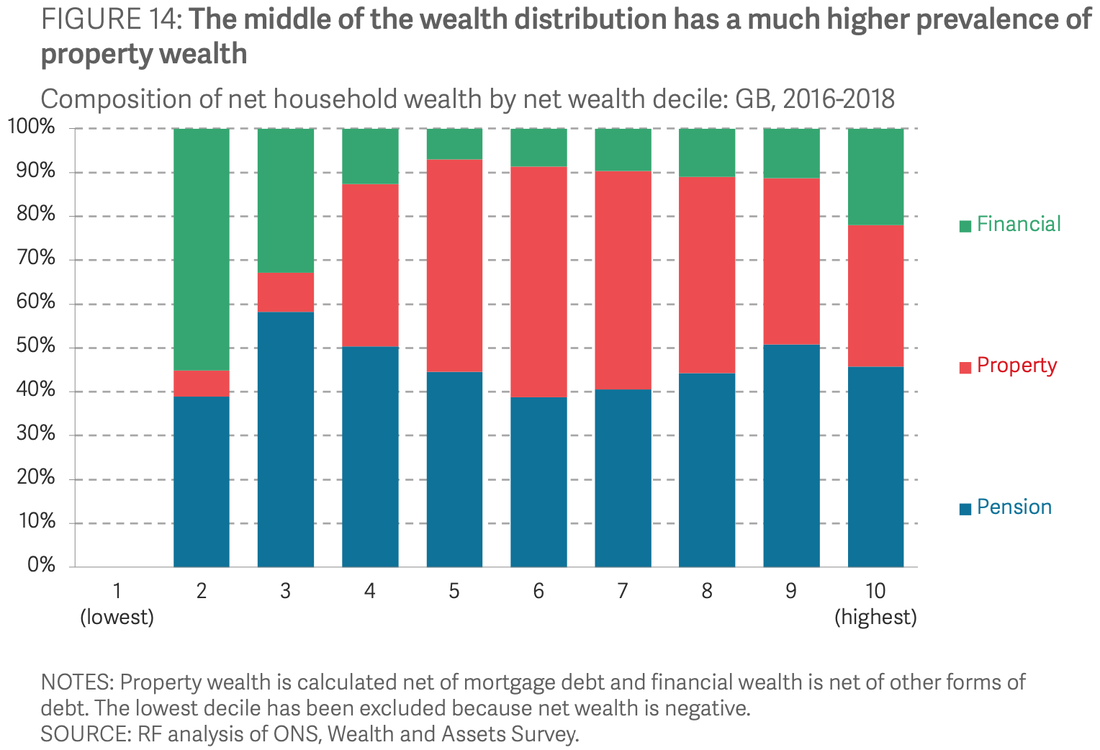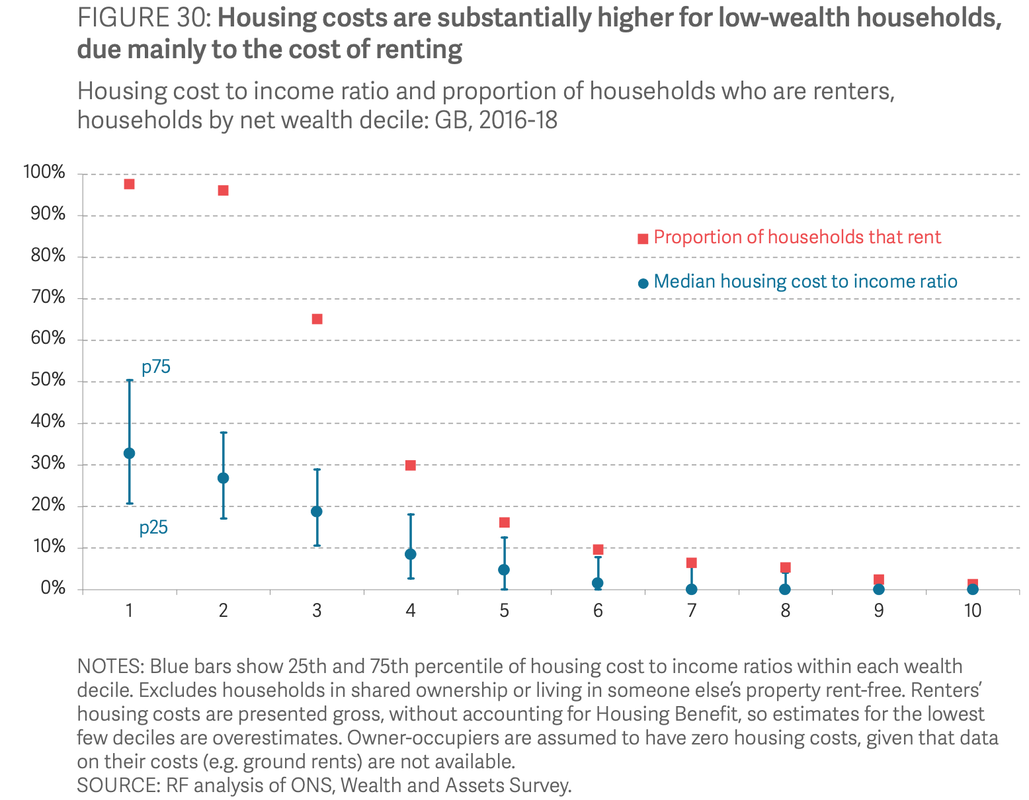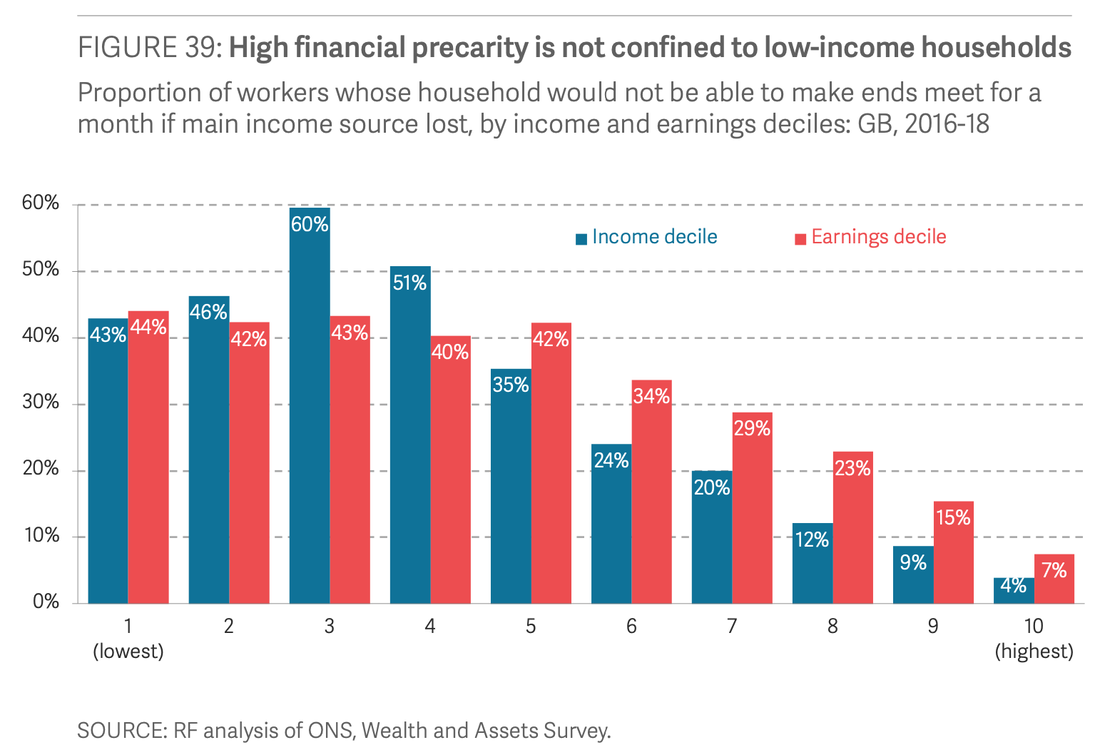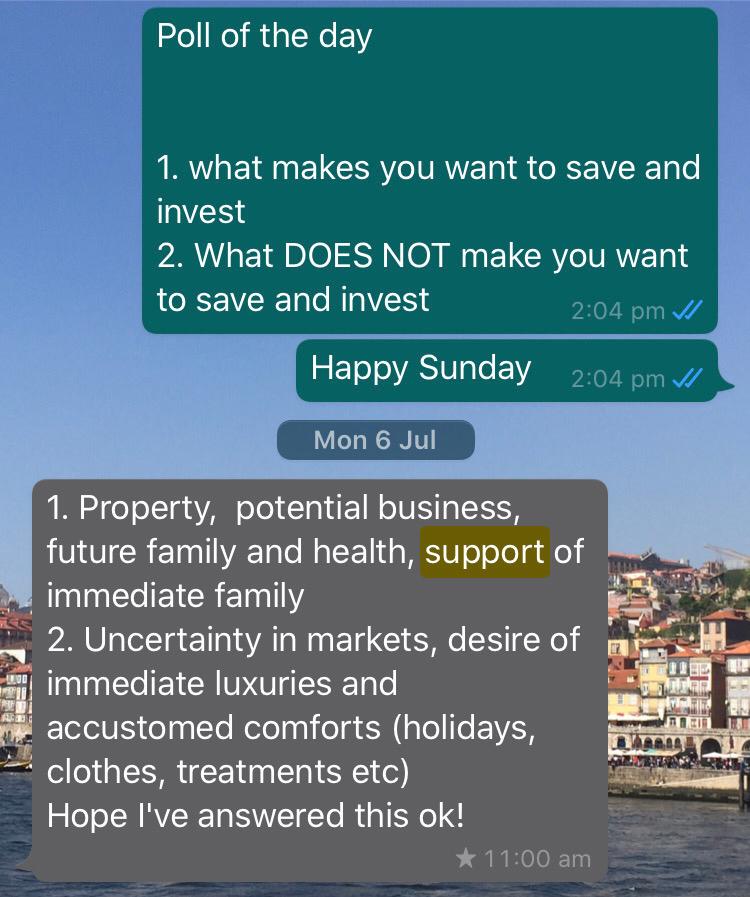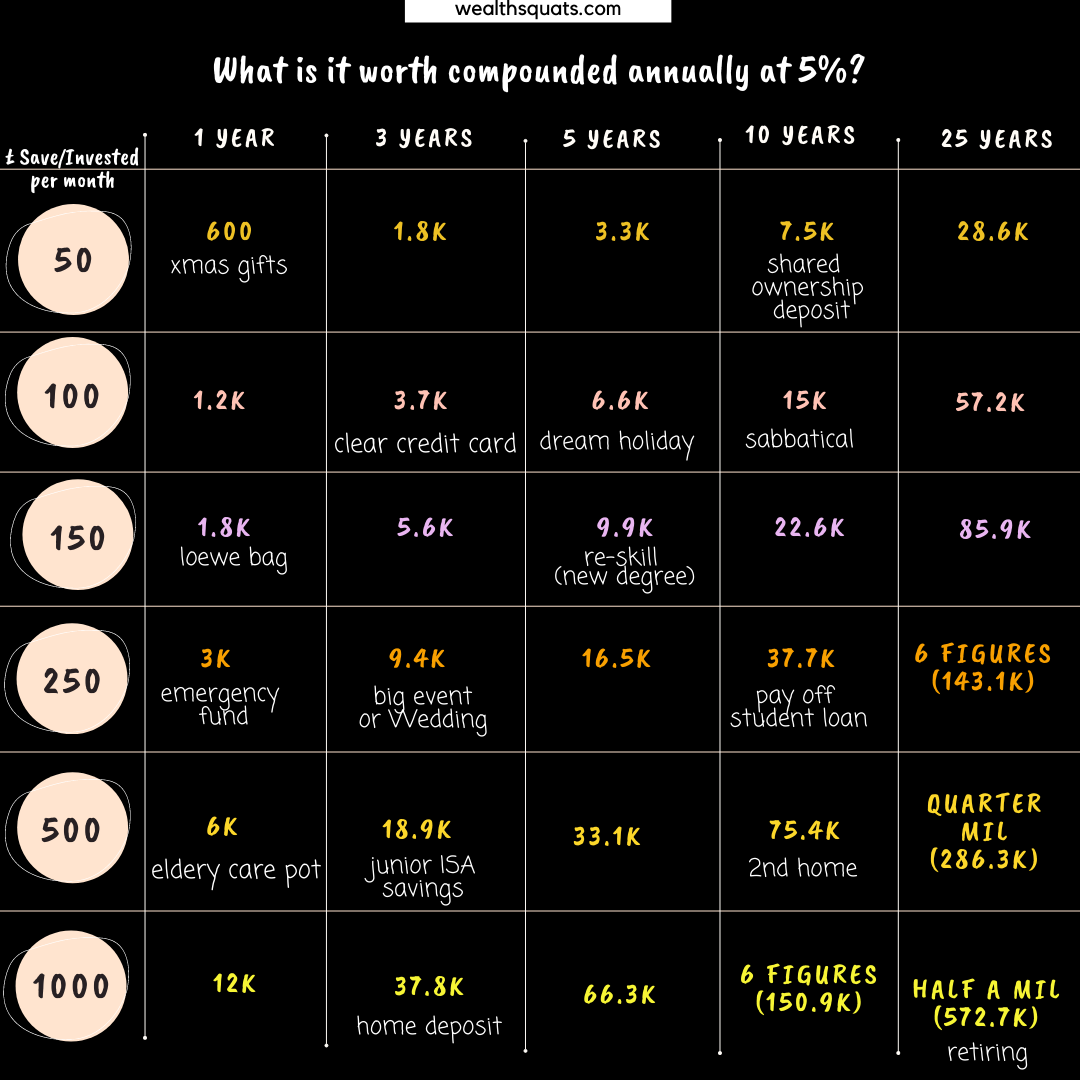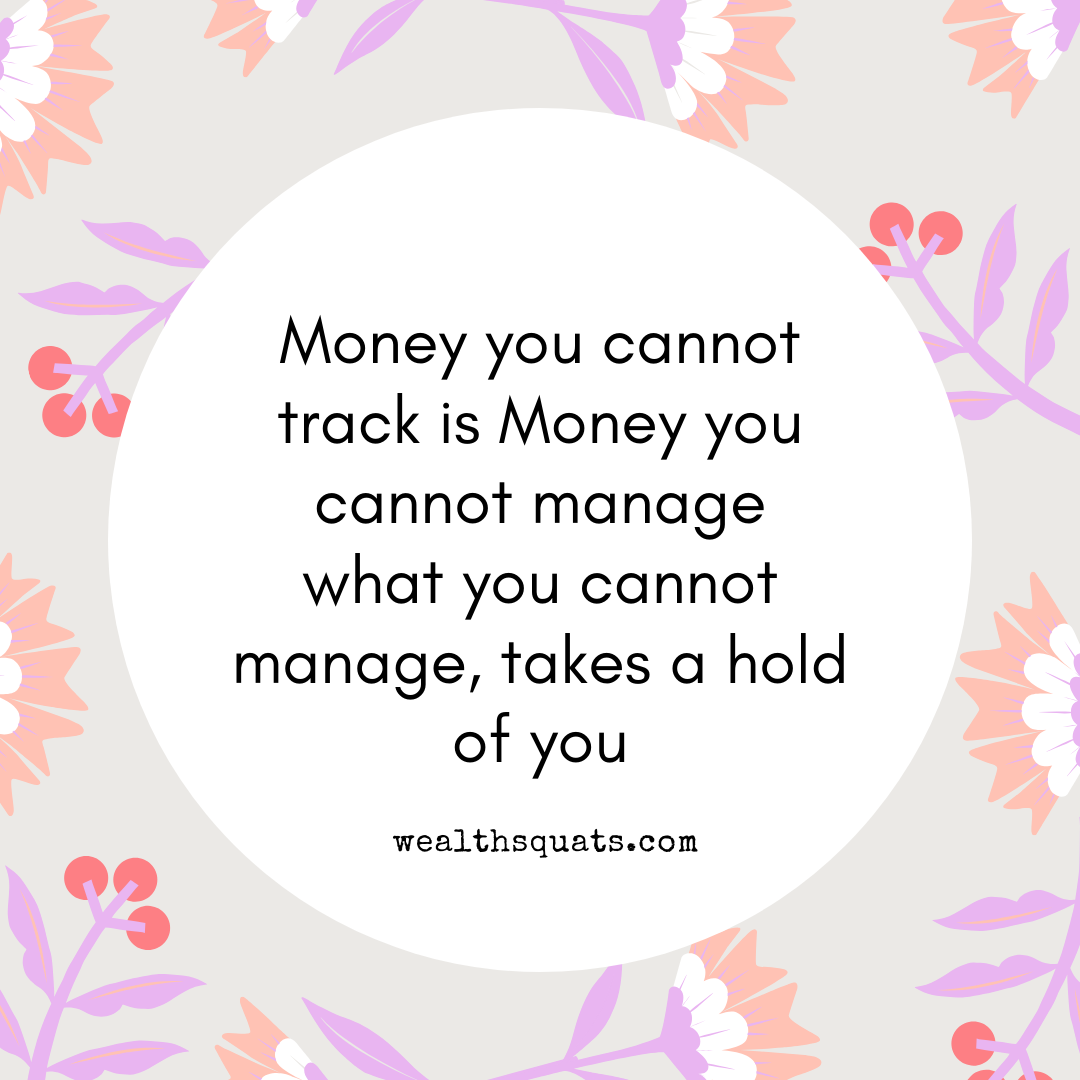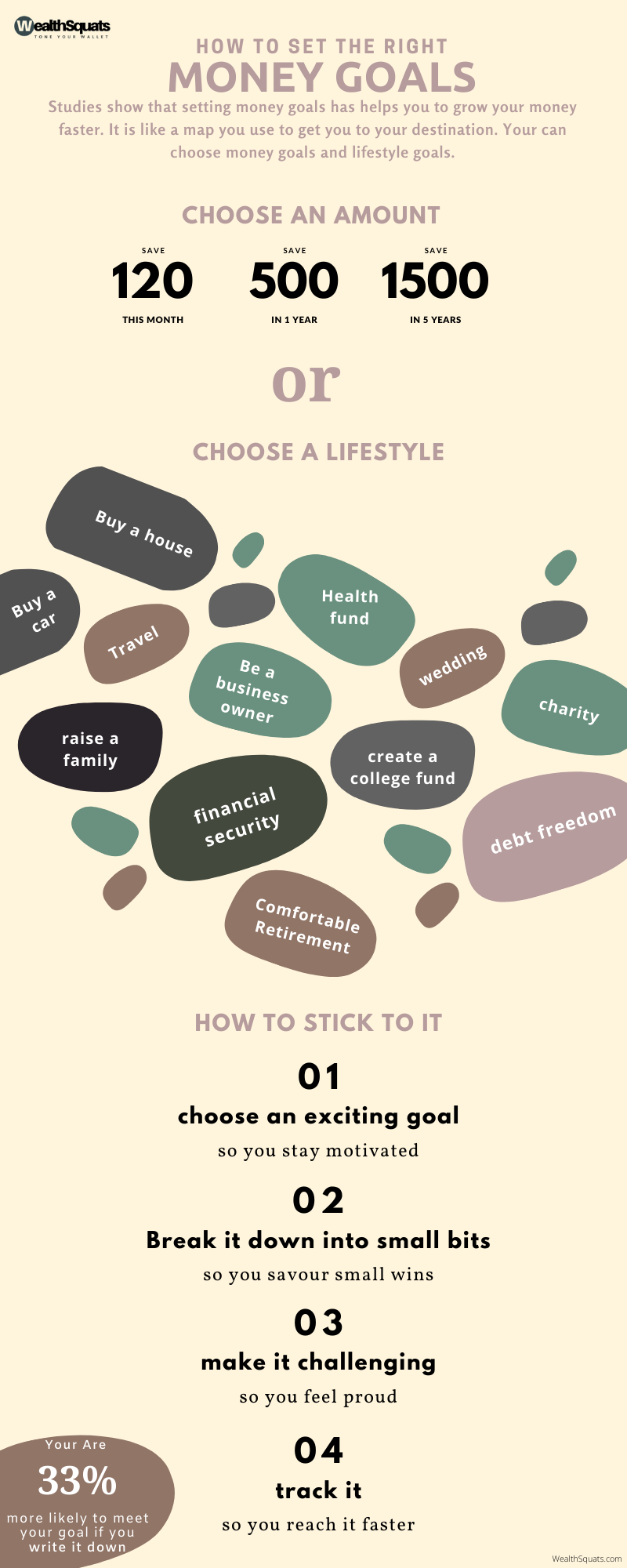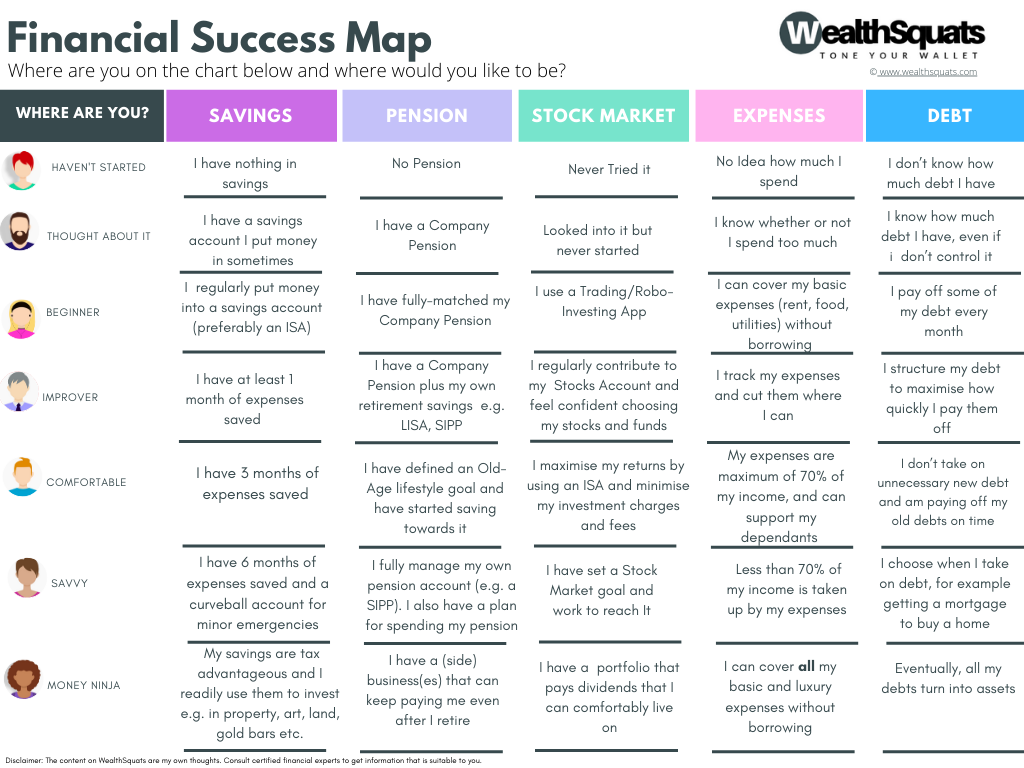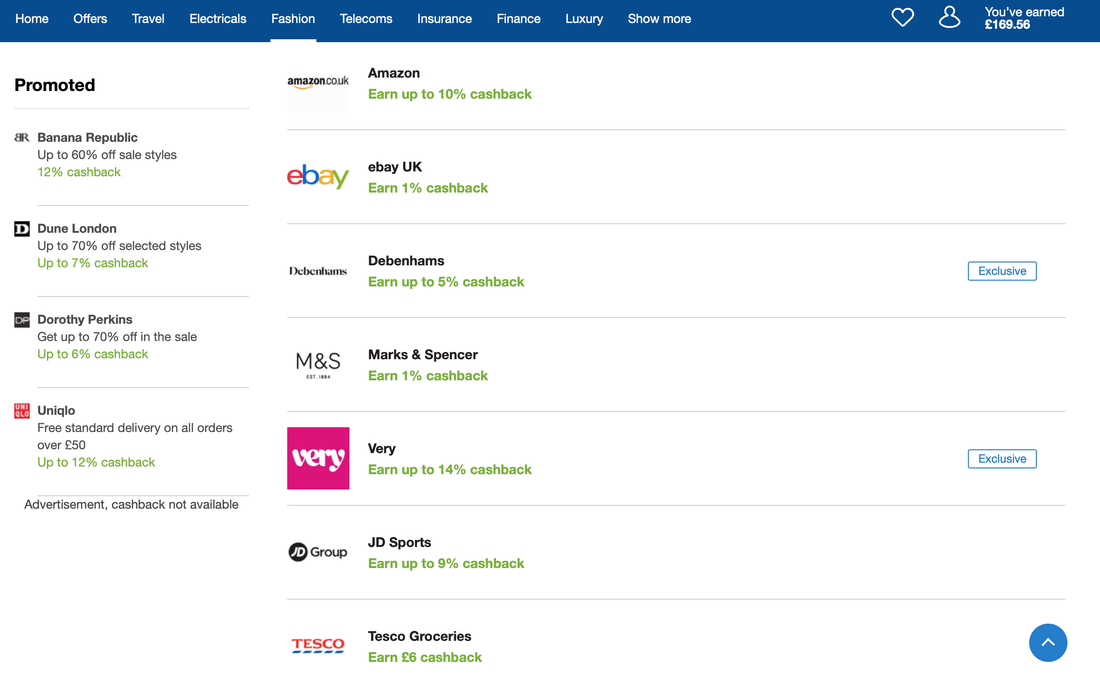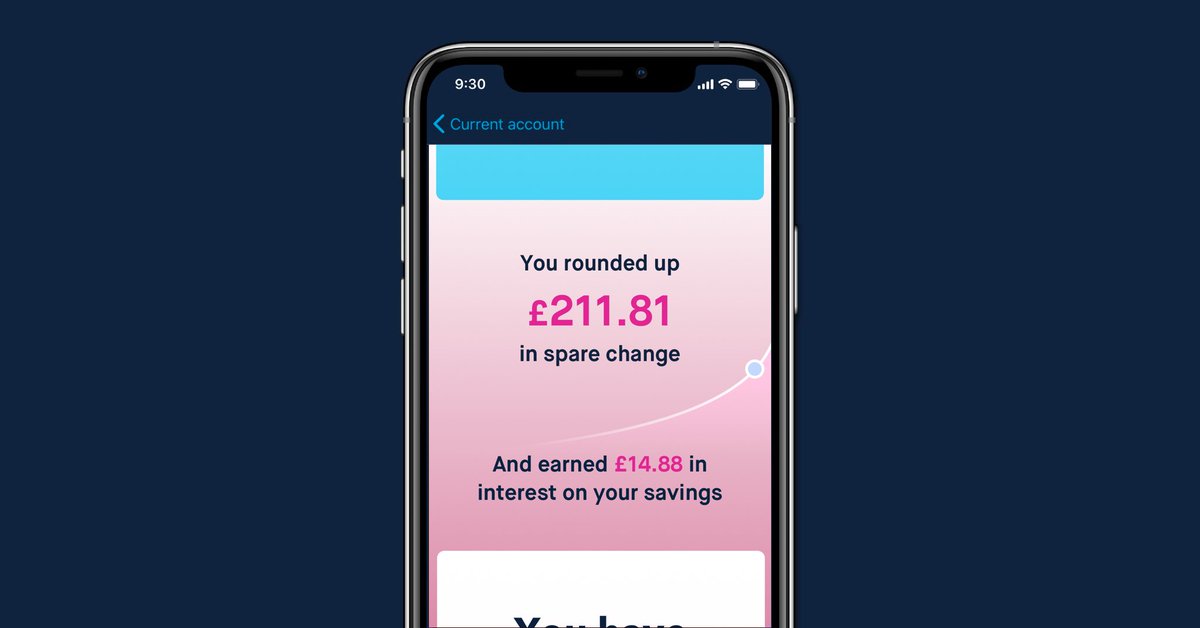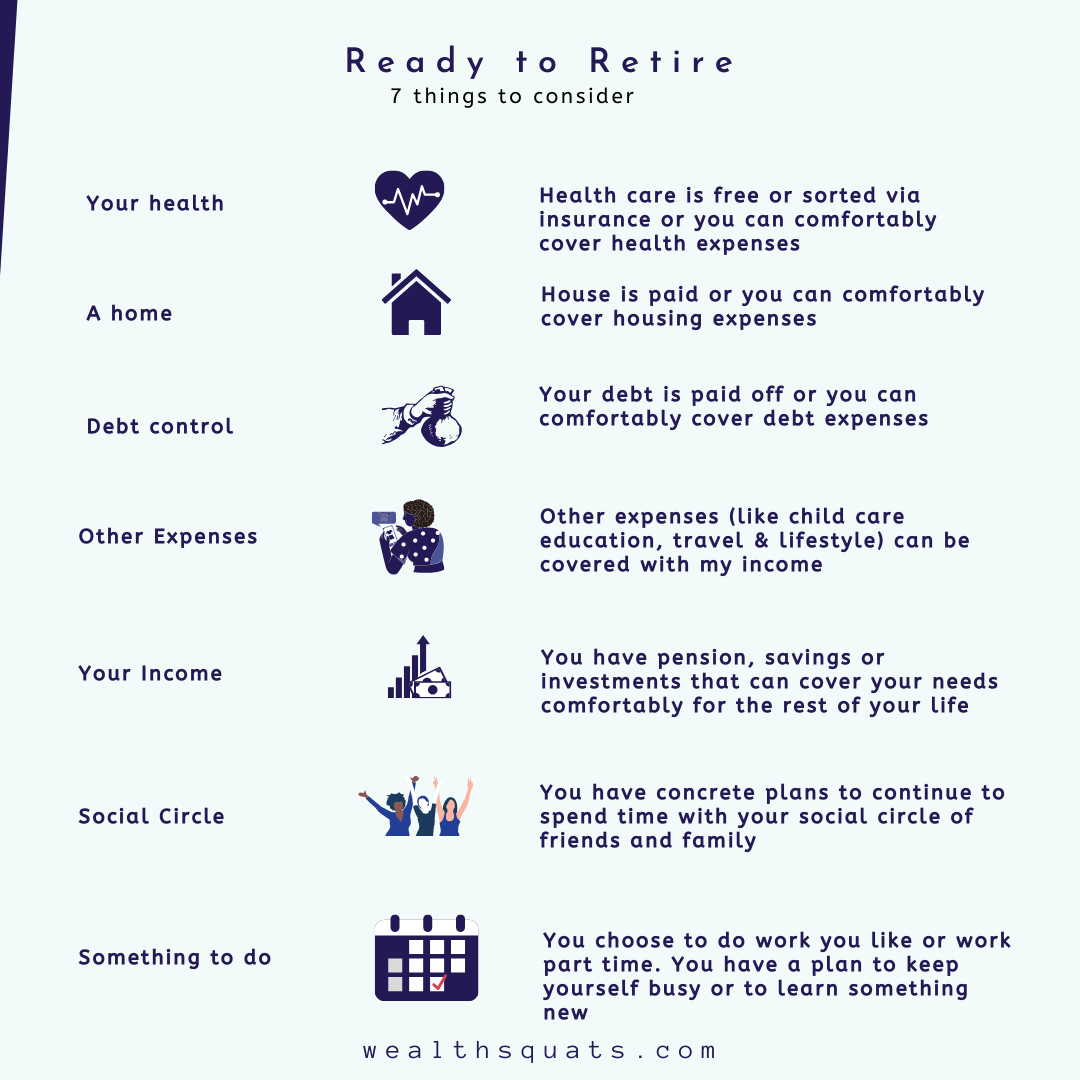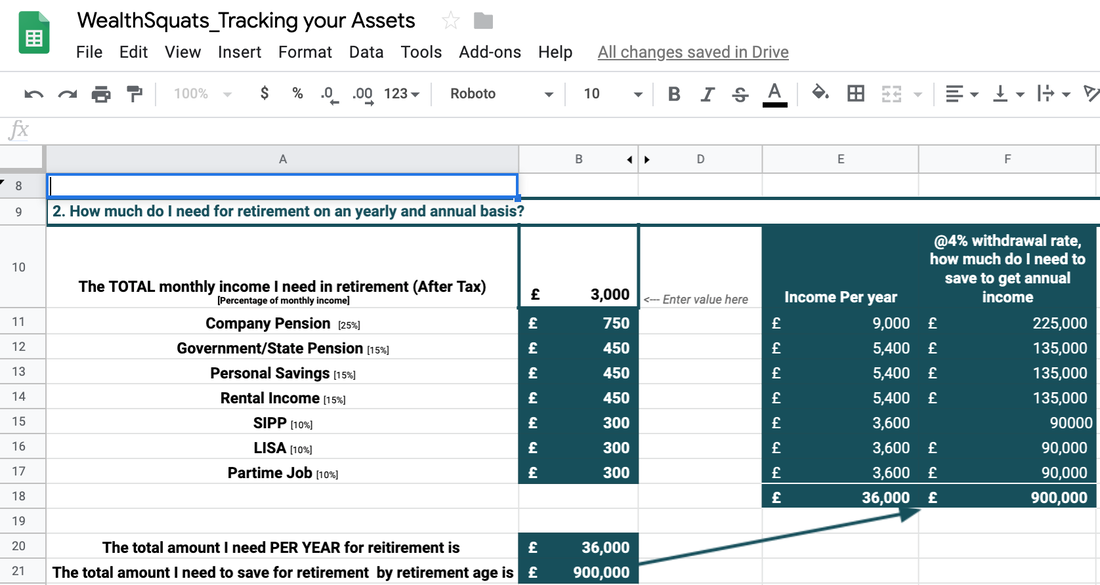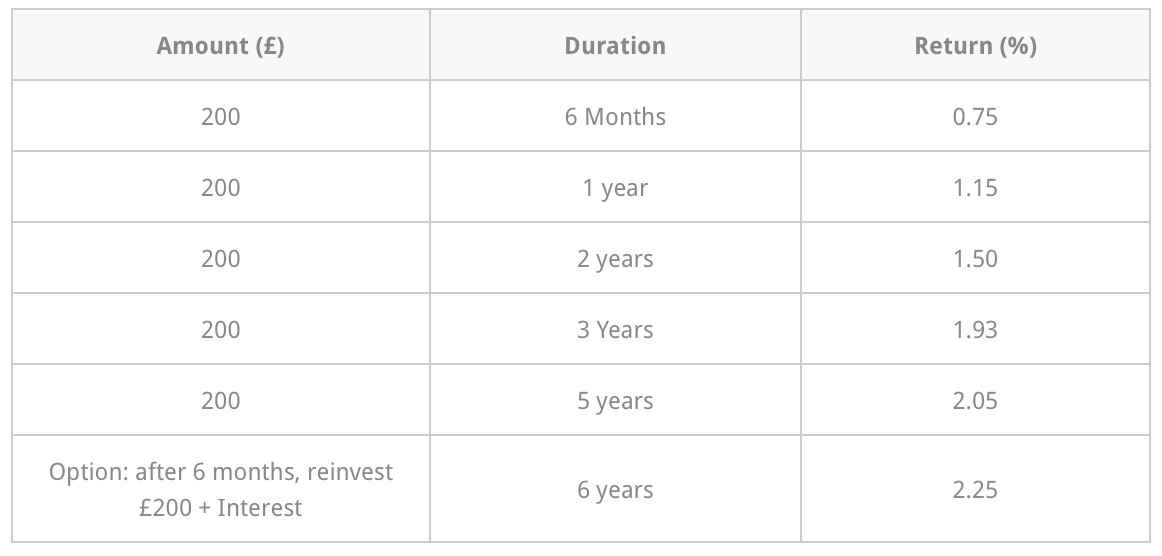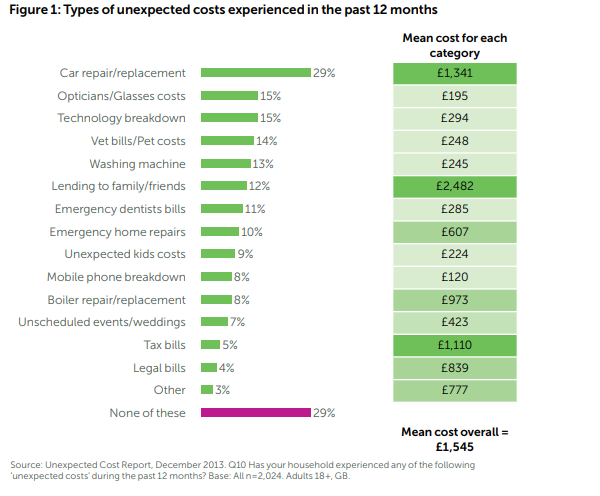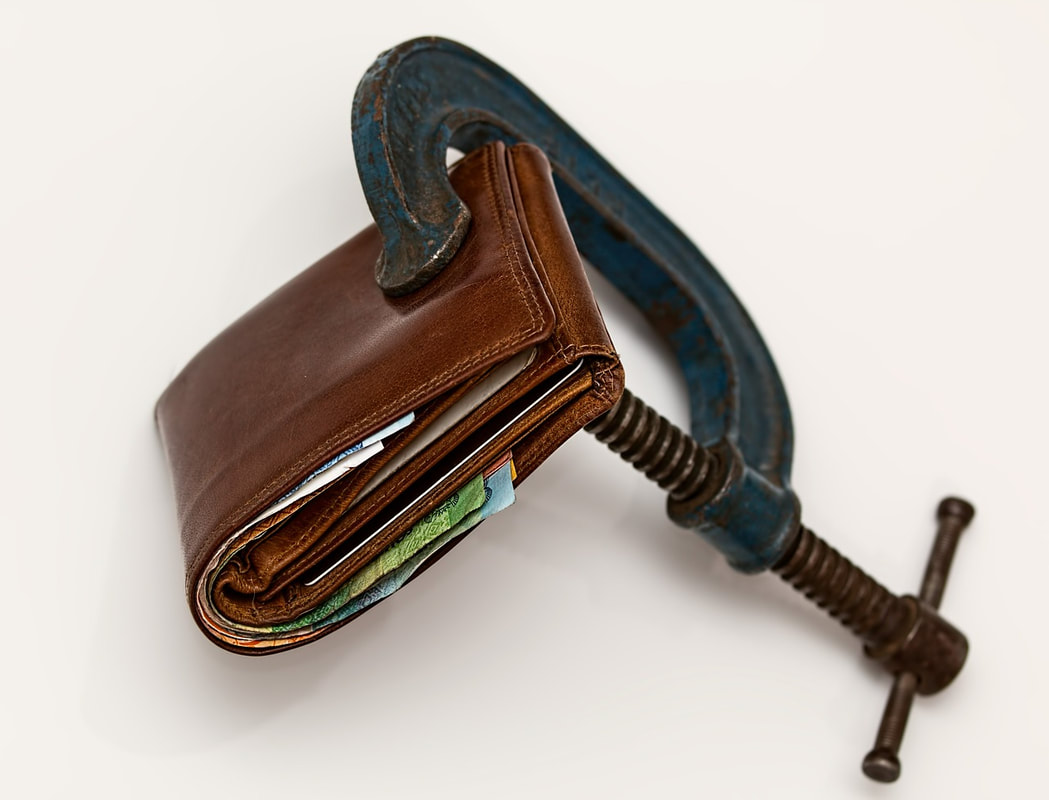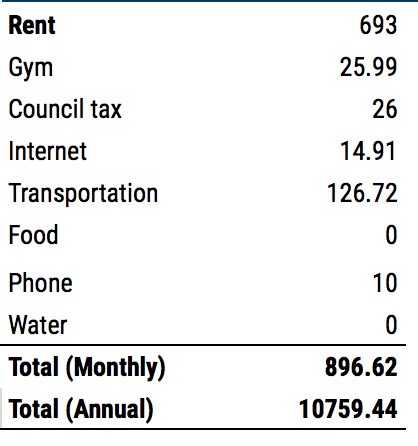|
�
Archives
September 2021
Categories
All
|
Back to Blog
Is your money safe with banks?6/29/2021 You are on track with your savings and investments plans. You also have different bank accounts for your money. What's more, your mortgage is from another provider and you use different apps to invest and manage your pension. Think about this - what if the bank or investment platform goes bust (like this one), how much can the UK government pay you back to protect some of your hard earned cash? The FSCS is a scheme you may have recognised on banks website, investment websites, emails and more. What are they trying to tell you? How can you make a claim and how much protection do you actually have? Trivia: Imagine you have £50k in Lloyds bank and £50k in Halifax, how much of your money is protected? Hint: not all of it.
How much of your money is protected? Source: FSCS Money held in banks or building society
Money in Investments
Mortgage
*Intermediation is when an entity works on your behalf to get you financial products Your Pensions
Your Debt
Insurance
What if I have more than £85k? Based on my research you may to have distribute the excess of your money across different banks and or platforms to be fully protected. Sometimes, this can be expensive due to the fees that could be paid. This also also be difficult to manage over time as you cannot exceed 85k in total (capital + interests or dividends). Alternatively you can trust that the provider is taking the right steps to protect your money and is in alignment with the Financial Conduct Authority (FCA) rules. How do you make a claim? To make a claim, click here to find out if you are eligible. Remember: Your money is safe with FSCS up to a limit. Your checklist
FSCS Protection Checker A 2 min video on FSCS
0 Comments
Read More
Back to Blog
Three ways to go Green with your money5/30/2021 Savings accounts that plant trees when you open an account, Banks that only loan to charities, Cheaper mortgages that reward you for an energy efficient home or 1-click robo-advisors that help you invest your money in green ways. ESG, Impact Investing or Green Investing is taking off these days. But what is it about and how can you use your money to align to your beliefs? There is a lot of about 'Going Green'; you may be actively looking for ways to use and grow your money in ways that are helpful to society, the environment and in alignment with your own ethics or beliefs. You may be interested in supporting companies that for instance, treat workers well, are socially responsible and take sustainability seriously. Your money has impact and investing is one way you can make a loud positive noise. If you are interested learning how to make it happen, below are 3 ways to grow your money and do good. Savings Account that plant trees One of the first areas you might to consider is where to put your cash. Companies like Gatehouse bank is encouraging savers to open on of their green savings accounts; by doing this, a tree will be automatically planted. Charity Bank uses your savings to make loans to charities and social businesses. Cheaper rates, Green Mortgages for Energy Efficient homes If you buy an energy efficient home, some banks (like NatWest, Barclays) are promising lower mortgage rate (monthly payments) to encourage you to remain sustainable. The banks will look at the energy performance certificates (EPC) or your energy rating of your property which must be rated A or B along with other typical factors (like your income, deposit, credit score and more) to determine your mortgage. EPCs are valid for 10 year and if you want to know the rating of your home, click here to find out. Invest in Green funds on the Stock Market Impact Investing, Environmental, social and corporate governance (ESG) funds, Ethical Investing, Green funds used interchangeably are themes or words that allude to a group of companies that are focused on doing good. These companies typically create products or have plans in plans to become more ESG sound. As a shareholder buying into one of these companies of funds (group of companies) you have the ability to use your influence to help them raise their ethical or green standards. You can choose individual companies to invest in that are creating products that are ESG friendly. You can look at their annual reports to see what they are doing about ESG or Going Green. You can also choose funds that have been set up to focus on ESG. A quick google search can yield multiple results. Many robo-advisors have set up 1-click funds for investors to get started with no hassle. Now, some of these companies or funds may be using green as a new buzz word to get you hooked so it is important to check the credentials of these companies to ensure they align with your moral goals. Read here to remember to keep fees low. Invest in Everyday people...building insect pet protein
Everyday people are also taking part in the Green Wave. Websites like Seedrs and Crowdcube allow you to invest in small early stage companies that are tackling the ESG challenge head on. Where it is creating biodegradable products, building technology to reduce carbon emissions, creating insect protein pet food or even building plastic roads; you can choose to support an entrepreneurs dream to create products that you'd like to see in the world. Of course every investment has its own risks so read the terms and conditions carefully.
Back to Blog
Home ownership is a goal many have but I have seen many stories of people buying their home and becoming worse off financially because they have saved for years and have put ALL their savings to get a roof over their head. 6 months later, they have save just enough to get a couch and the slog continues. This doesn't have to happen. in this post, we explore ways to avoid being house poor and it takes planning and prioritising your well being. Rule of Thumb: The deposit is just the start add fees, tax and savings. Key takeaways
Build your emergency fund. This fund should not be used for the home. Your emergency fund is purely for your own insurance and should cover a minimum of 3 months. I would even take this further and have a small pot for fun so you remember to prioritise yourself. Don't only save for your deposit, legal fees and Tax. Factor in payments for furniture, furnishings and at least two months utilities. Let us know if we are missing any other costs. 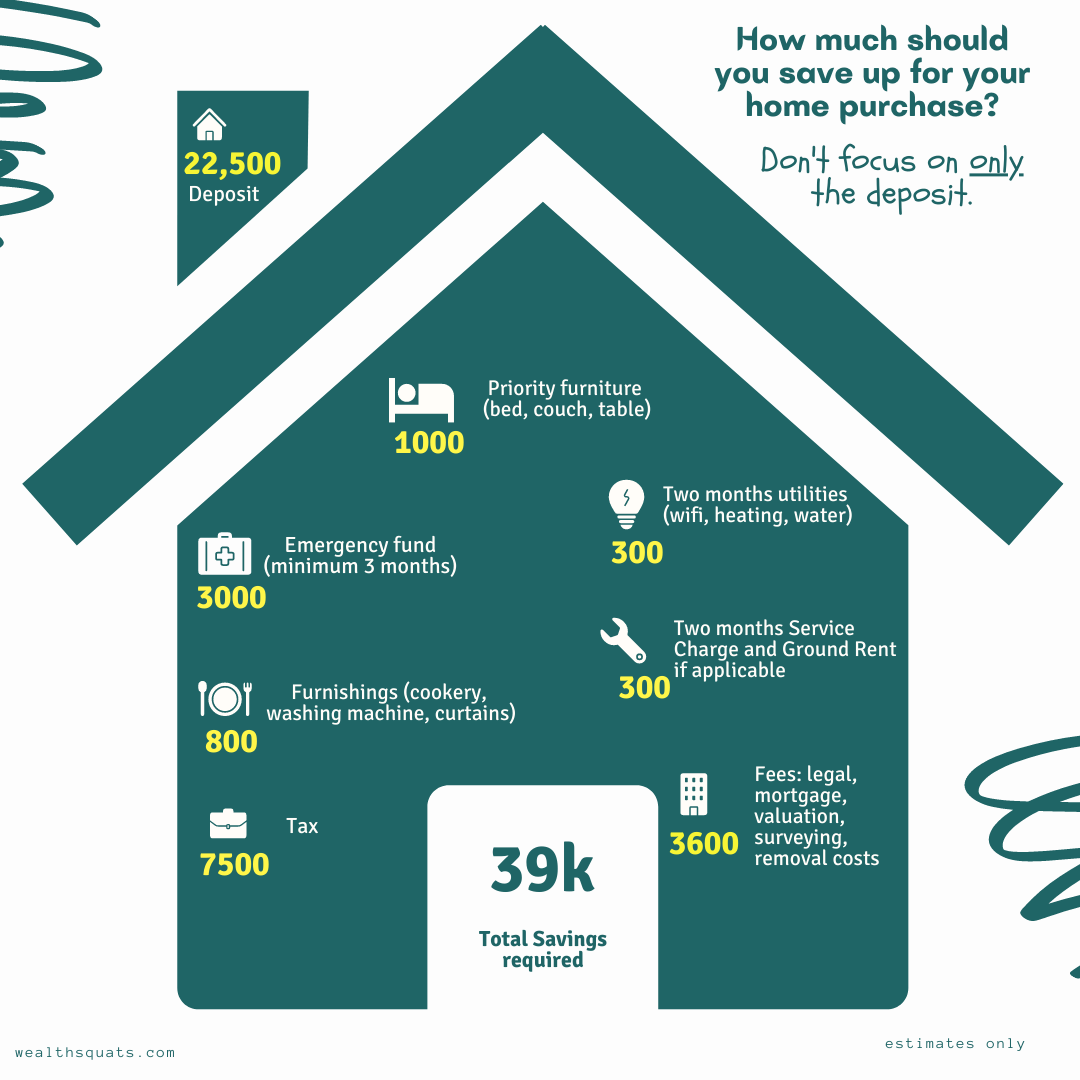 Get cash back for all the spending. As a new home owner, you'll be buying a lot of things in a given time period. So get cash back to get paid while you spend. This is money you can spend else where.
12+ guilt free ways I cut my spending to save more If it doesn't appreciate, get it pre-loved To save money, use pre-loved websites like e-bay or gumtree for things that you are not to precious about. Things like flower pots, cookery are great candidates. Stick to your budget and take your time You've already made a budget for your home purchase. Your budget is the cornerstone of your financial life - it is your partner in helping you to achieve your financial priorities. It also keeps your focused for all the other non home expenses you need. So future you asks that you stick to it and prioritise your joy. I stopped making these mistakes and it changed everything
Back to Blog
Someone reached out to me to try to solve the puzzle related to earning a high income as an employee (£237,000 to be exact) and using tax laws and perks to keep the most of the money to save and invest.
I scoured the tax rules to pull a quick report that broke down how that money can be allocated in tax friendly accounts or where tax relief can be obtained. This exercise was a great reminder on why we should invest in a tax advisor to help us keep most of our money. A tax advisor is available to all income levels and although there could be costs associated with this service you can save up and use them at least once a year to get your monies in order. If you are on a low income, you can get free advice from the government. I have just opened a Money pot called Life Admin where I'll be saving to get a tax advise and formalise a Will. Many wealth builders have great lawyers, accountants, doctors and financial advisors. What can a tax advisor do for you:
How to manage a £237,000 income and Tax. Click here or the image below to see the full report. Need a Tax Adviser, click here to choose who is appropriate for you or use the all in one service from Taxscouts and get 10% off.
Back to Blog
60+ Financial Goals you can achieve anytime12/20/2020 Here's a 60 plus list of money goals you can achieve anytime. We've covered the research behind the power of writing down your goals. So choose yours or add to the list. Do right with my cash savings
Travel & FunProtecting my Family
Save better and more
Manage Debt
Take care of my future
Give BackHomeownership
Financial Health Check
Experiment with my ideas
Enablers
Big overall Goals
Back to Blog
NS&I have cut Interest rates meaning you get less back for your money. There is speculation that other bank/lenders will follow NS&I's lead. This means that holding a lot of your money in cash will not make you rich anytime soon. What else can you do with your cash?
Back to Blog
Leaving university can be an overwhelming and stressful time for students and I firmly believe that Personal finance does not have to be one of these issues. The truth is, all you need are a few basics to set you up for life and luckily, these are not complicated. Looking back I wish I had someone to teach me personal finance whilst at university and so in this post, I share my experience, key tips and hacks related to budgeting, saving, investing and borrowing. Key points
University is a fantastic starting point to begin building a brilliant fiancial future because students have the benefit of time to apply their skills to do meaningful work My Experience I know from my experience, even with a degree in economics and a job in banking, I could use someone discussing money with me. It has been one of my goals to bring this valuable knowledge back to schools. I launched wealthsquats.com to start this journey. My vision is for all students to make clever financial choices whether it is how much to save, how to manage debt, how to use the stock market, how to be rich or how to have peace of mind about money. This post is my view of how students can get started on their financial journey. The first step is to set up some money goals that you want to acheive. When I began this journey, my goal was to track and increase my net worth. As I progressed, I increase the amount of money I paid into my company pension from 3% to 5% to benefit from company matching and I opened a Stocks & Shares ISA to get involved in the stock market. Will you be self employed or work for an employer? Many students will choose to work for themselves as the freelance and consulting industries continues to form a significant part of the UK economy. Others and the likely majority will find jobs with employers for instance through graduate schemes. As a student, what does it mean to be self-employed or employed? Self employed
Company Employed
The first financial decision you make as a Graduate is what Salary to choose Let's use the example of a student who will be employed in London. The salary this student can expect to get in London is around £29,000 - the average annual salary for graduates in London. Of course depending on the role, sector and negotiation, this figure can vary. It is important to know that the salary you choose will form the basis of how much you can save or invest. If you are able to have other sources of income, your savings and investments can expand accordingly. The salary you choose upon graduation will form the basis of how much you can save or invest What could be your salary? Using the salary calculator, If you make, £29,000 a year your actual take home pay is around £1,800. As a working member of the population, you will start to contribute to the wider economy via taxes and national insurance. In addition, your company will likely have a pension plan which is deducted before you receive your take home pay. Also, if you have student loans, these will be deducted as well. For 2019/2020, the personal allowance - which is the amount of money on which you do not pay taxes on is £12,500. So what is likely to be your take home pay?
Your TAKE HOME PAY (salary after tax) is £1804.50 Next, we deduct your expenses?
Your TOTAL EXPENSES: £1435 What is LEFTOVER: (£1804.50 - £1435) = £369.5 Most people do not get rich by winning the lottery or via inheritance. For many, they just saved in assets that grow over a long period of time. What steps can I take to build a brilliant futureAs a student, it is from the £369.5 that you can start to save and invest. The expenses example above is just an example of what you can have to build a great financial future. This amount is much higher than what I began with and I focused on investing in things that grow. Step 1: Choose how much to save and where Here is how you could save or invest £369.5. £60 Emergency Fund (Cash Savings) £30 Oops account (Cash Savings) £75 Travel & Fun account £150 Stocks & Shares £25 LISA £25 Bond Account (5 years) TOTAL SAVINGS & INVESTMENTS: £365 To maximise your savings, continue to invest each month (automate this process) and keep tracking your performance. Most people do not get rich by winning the lottery or via inheritance. For many, they just saved in assets that grow over a long period of time. In my experience, I have found my pension to be one of the fastest way to grow my overall net worth this is because if I put in 5% of my salary, my company matches it by 5% so I get 100% increase each month on my pension savings. Step 2: Step up a budget Entering your savings and expenses into the WealthSquats tracker, you can see that your expenses make up around 80% of your income and you are only able to save around 20%. Now you can take steps to creatively think about how to increase your savings. In my case, I moved to a cheaper room to reduce my rent after reading that rent should take no more than 30% of my income. Thereafter, I significantly reduced my eating out and put every extra savings into cash savings or the stock market. Today, I still continue to find ways to optimise. There is a rule of thumb that says, wealth creators save 30% of their income and spend 70% on expenses. This rule is a rough guide but can help wealth builders like yourself to control your outgoings. I do not believe in budgeting and suffering, we should still live a good life no matter what income we have so it is crucial that you add 'enjoyment' into your budget so you do not restrict your self from doing what you like. Every month, I make sure that I save or invest my target amounts and once I've done that, I am free to spend whatever is left as I please! Step 3: Control your Debts Debt is another expense that can significantly reduce your ability to create wealth. I suggest you read this post on how to spot good and bad debt behaviours. To summarise, save and invest in things that grow Wealth building is fundamentally about saving and investing in things that grow. With this in mind, use the tips below to build that brilliant future.
Once you've got the hang of this, your money goals will evolve and you'll already have the wealth building basics. What to consider when deciding on your first salarySelf employed
Company Employed
So what choice will you make?
Remember to share these tips with your friends and start taking active steps to build a wonderful financial future. Get in touch if you have more questions.
Back to Blog
Why do the rich pay less for housing month on month? How do they make their money grow? How many of them can survive one month without a pay-check? I read the 2020 report from Resolution Foundation on wealth in the UK to see what research says about how to be rich in the UK. Keep reading to see the surprising answers. First, a quick recap: What is Wealth? Wealth is your assets (An asset: is a thing of value that grows e.g. savings, pension, real estate, art, gold etc.) minus your debt. We also call this your net-worth. In this study, 4 types of wealth were measured:
So, how do the rich manage their money?The top 10% have about 50% of UK's wealthThe average net worth of the 10% is £800,000. But, where do they grow their money? Keep reading to find out.Do it like the Rich: When it comes to financial assets, the Rich hold less cash and more of their money in growth assets like savings bonds, ISAs, and Stocks and Shares.Poor households hold most of their money in cash or current accounts where there is very little growth. When the rich hold money in savings bonds, ISAs, and Stocks and Shares, they benefit from:
Do it like the Rich: The Rich have about 45% of their money in pension pots, 35% in property and 20% in financial assets (savings bonds, ISAs, and Stocks and Shares) Financial wealth (in high growth assets) increased substantially in the last 10 years and this contributed significantly (80%) to the overall wealth of the rich.As mentioned above, the financial assets of the rich are held in growing assets like bonds and the stock market. The Stock Market grew substantially in the past 10 years and it made the rich richer. The poor held most of their money in zero growth assets e.g. cash or current accounts and even when they added more money in these places, it grew at a much lower rate. Do it like the rich: Richer families tend to be homeowners Their housing costs are around 5% of their income if they own their home outright or 11% of their income if they have a mortgageDo it like the Rich: The Rich have emergency funds 7% of the rich would have a hard time if their main source of income is impacted as opposed to 44% of the poor.An emergency fund allows the rich to stay afloat if a shock like a pandemic or job loss takes place. Young females who are not degree educated were the most at risk if their income ran out. Do it like the Rich: There you have it. Some insights into the habits of the rich. Of course there are other ways to get rich, such as owning a successful business, investing in start ups, inheriting money or owning art for example. The options above are the accessible ways to start to build wealth and is the reality for many everyday people. See this infographic on how to spend £2000 which highlights the step by step guide to implementing the lessons above.
Which Rich habit will you start to use?
Back to Blog
What do you want to be when you grow up? What is your 5 year plan? What are your career goals? What are your relationship goals? We've all heard this at one point in time and I wonder, why do we not also ask: WHAT ARE YOUR MONEY GOALS? if you are the kind of person that writes your life goals, does it include money goals? Research has shown that writing your goals down can make you reach them faster. Keep reading to find out how you can incorporate this money habit for success. What you need to know
I asked 5 readers to share their money goals:I asked 2 questions: 1. What makes you want to save and invest 2. What DOES NOT make you want to save and invest Click on the images below to see their responses. The research and experience of writing money goals Every year, I write my money goals down. So far, I have found that I met them before or after the deadline I had initially set. I believe that there is some magic to writing things down. Once you write it down, it is autosaved in your brain and then somehow, you start to focus consciously or unconsciously to make it happen. My experience aside, research has shown that setting goals makes you more confident, motivate and in control - no wonder employers use performance reviews to set and monitor targets- they know that if done well, it motivates employees and can also help their business grow. If you want to actually make it happen, start by writing them down. 'A study by Gail Mathews, found that you are 33% more likely to meet your goals if you write them down, share it with a friend and review it frequently'. Want to meet a money goal? write it down. How to Write a Goal that you stick to (4 ways)1. Choose an exciting goal According to Business Insider, 'Instead of being afraid of your finances, focus on the goals that excite you'. Why? when you choose an exciting goal, you stay motivated to make it happen. Here are the types of goals you can write down: Types of Goals
2. Break it down into small bits Big goals can feel overwhelming and when it comes to money goals it is important to break it down. A Harvard study explains, 'When we’re judging the difficulty of a goal, the first thing our brains see is the size of the gap that separates the goal from the baseline. The bigger the gap, the more difficult the goal' For example, if you are planning that trip to tour the East Africa and it would cost 2000. Saving 2000 might today can feel challenging. To make progress, you can break it down to save 100 a month and add more in months where you can. After 5 months, you'll have 500 saved and have covered 25% of the cost. With an exciting goal ahead of of you, you can celebrate the small progressive wins and that is key, 3. Make it Challenging If the goals is too simple, you won't be satisfied. Research has shown that you achieve 'greater satisfaction from achieving goals that help you improve as opposed to maintaining the status quo'. So, If you are dedicated to clearing your 3 credit card debts of 2000, 1000 and 300, you'll likely be more satisfied clearing the 300 than paying off the minimum for each month which would make you feel like you are not improving. Going back to the readers response on What DOES NOT make you want to save and invest? I noticed most of the response was about making sacrifices today so they can enjoy tomorrow. I think this is another crucial element of satisfaction, delaying gratification, allows the reward at the end to be more enjoyable. 4. Track It Truth session. Years ago I began tracking one specific money goal. Since then, that number has increased by a whopping 4024% to be exact. How come? What you cannot track, you cannot measure. Remember the research I mentioned earlier, it said, if you share your goal with a friend on a monthly basis, to keep you accountable, it happens. My friends are my spreadsheet, MUTAZ, and you readers of this post. I review my spreadsheet monthly to check how I am doing. Tracking helps me to stay focused and also allows me to think of new ways to reach my goals faster. Grab a copy of the WealthSquats smart budgeter to write and track yours. Need help on where how to start tracking? Use Financial Success Map to make a plan.In Summary
Back to Blog
With COVID-19 restrictions easing up in the UK and around the world, many of us are left asking - what's next for me, my career, my health and my finances. Some of us are unsure, confused and looking for clear answers. In my previous post, I wrote candidly about how this pandemic has made me re-think and replan for the future. Since then, I have spent the last weeks trying to define the milestones of financial success. Specifically, what could it feel like or look like? I tapped into research and my personal experience and I have designed an interactive financial success map lets me assess how I am doing with my money goals.
I asked 5 readers to share their financial success Map...
Back to Blog
Over the past weeks, two things continue to dominate the news: health and the economy. This pandemic has highlighted how important and fragile these two aspects of our lives are. Because we feel good, we can easily neglect to check on our health Apart from the regular advice to eat better and exercise, one thing we can do moving forward is to get an annual health check. In my view this is particularly important if you have a pre-existing condition, a family history of an illness or are past the age of say 35+. Many of us may think that we need private healthcare to get this but this is not the case. Last year, I used Wowcher to get a £120 health check for a family member with a pre-existing condition to make sure everything was fine. The report was detailed and highlighted some known and unknown problems in a clear PDF. This provided some peace of mind for the whole family. The NHS also provides health checks, although you have to be 40+ to qualify. Also factor in health checks for specific areas (breast checks, kidney checks etc), depending on your medical history. Apart from our financial investment, we should have a health saving pot that is allocated to getting needed health care. We are not only responsible for ourselves but also our friends and family and it is important that we remind and help others to invest in their health as well. In the UK, we are lucky that we can get free health services. On a couple of occasions I forgot, or dismissed the need to complete my General Practitioner (GP) checks or vaccines - not a good idea. I got a chance to get a health check via work and the GP told me that we all should contact our GP if something does not feel right. The earlier the better. The NHS does not cover everything however, special services like dentistry, dermatology, physical therapy can all incur supplemental charges. Again a money pot can really save you here. This is especially true if you have children who may specifically require services like braces, paediatric assessments etc. If you want services beyond the NHS, you can shop around to get the best health insurance for yourself where you can pay a monthly fee to get covered. Look at what health services are covered before you make a decision. Many people think they need a job that offers private insurance, but self pay can be as low as £15, and may actually turn out cheaper than paying out of pocket per visit. One more thing, if you have a family and a serious pre-existing conditions/family history of health problems, consider getting life insurance to protect your loved ones. 5 ways you can invest in your health:
As part of our financial investment, we should have a health saving pot that is allocated to getting a health check. 6 ways to create financial safety nets to weather unprecedented stormsLast year I explored the definition and steps that lead to financial vulnerability - last week, I read an article that sums up how this happens ' first gradually and then suddenly'. In the news today, we see many stories of people who have been forced to lose their jobs particularly those in the gig economy and retail industries. This has been particularly difficult for women, many of who are employed in these sectors. For the lucky ones who qualify for the government support, they can still earn up to 80% of their income. But even still, a 20% pay cut can leave people in very tough conditions. Nonetheless, without this government support, I shudder to think of how life can be. Here are a few things I think we can do: 1. It is very important to Build and Sustain an emergency fund. A emergency fund is a saving account where you save enough to cover your expenses for a period of time if you are unable to work. Everyone should have an emergency fund. Start with saving 1 month worth of expenses then aim for at least 3 months, then 6 months. An emergency fund allows you to build the foundation to have something to tap into when things get really tough. If you are able to take this one step further, build a curve ball account to cover the day-to-day expenses that WILL arise. 2. Consider insurance to cover income loss in the event you get ill or lose your job. This way, if your income stops, you can get covered for up to 24 months until you are able to get back on your feet. Like other forms of insurance, you pay a monthly amount and if anything goes wrong, you get an income paid to you no matter what. 3. Consider getting mortgage insurance to reduce the risk of losing your home If you own a home, your mortgage is likely to be your largest monthly expense. In the event that your are unable to keep up with your payments, a mortgage insurance makes sure that you are covered. 4. Have a pension pot I cannot imagine how retirees with low or no pension are supporting themselves in this pandemic. We can be short sighted in these times and forget that we will live a long life. When we retire, our pension pot will become the core income source to weather storms like these. Making sure you are building a sizeable pension pot for when you are older is a constant goal for us all. 5. Invest in the stock market You are not going out, eating out or going on vacation. With the world on lockdown, the stock market is feeling the effects making some stocks/share and funds are cheaper. If you’ve got spare change, this is a great time to get stocks cheap. With interest rates getting lower (I saw one lender providing a 0.05% on savings), the stock market is one place where you can get a good return in the long run. 6. Negotiate the interest payments on your debts We know that there are good and bad ways to handle debts. If you are paying high interest on your debts, this might be a good opportunity to negotiate low rates with your provider. I have seen many articles of companies announcing support to their customers in this unprecedented time. Reach out and see what they can do to make you life easier for the long term. All in all, I hope we can do our very best to give ourselves and our loved ones the strongest chance of living a healthy life. Remember health is wealth!
What other things are you doing to invest in your health and finances?
Back to Blog
Companies like Revolut and Monzo have these two neat features that have made it easy for me to set up my curve ball savings account. Using one account, I am now able to split my expected expenses (such as travel, phone replacement, transport, beauty service) into different pots. PLUS I get interest payments. Curveball accounts help you manage the WHEN and IF it comes! The problems I was having Up till now, I used one savings account to save for curveball expenses. This account did not let me split my expenses and so I set up my automatic savings to hold it all in one go. if I wanted to split expenses into a savings account, I would need multiple savings accounts to track each of my curveballs. For me this was too much overhead. I don’t want too many savings account to track and maintain. Saving pots with Monzo and Vaults with Revolut My new curveball best friends are these saving pots and vault features from monzo and revolut. Why I like them
6 benefits! I am abuzz. At this time, I decided to go with Monzo saving pots because Revoluts saving vaults is only available to members with a Metal card which is available at £12.99 a month. At the time of wring this article, the Revolut interest rate is higher than Monzo'. If you have a Revolut Metal Card, watch the video below to see how to set up your VaultHow I have set mine up
Now I can track all my curveballs in one place and this has significantly made it easy for me to be on top of things. If I want to save for another thing maybe a trip next year, I can set up the a new travel pot and start saving so it does have to be a worry. Watch the vido below to Learn more about Monzo
Back to Blog
If you are looking for super smart ways to pay less for things you need, this post is for you. I have and continue to look out for easy ways to reduce my spending allowing me to save more guilt free. Keep reading to see the tips I use to cheer up my finances! 1. My credit card pays me for spending If you have a credit card, get or swap to credit card that provide cash back on expenses. I have cards that provide 0.5% on all spending and if I pay with contactless, I get 1% . So for every £100 I spend, I get back up to £1. Sometimes, the bank has deals with retailers who provide more than 1% cash back. This may sound like a small amount but it does add up. Since getting my credit card 2 years ago, I've gotten back around £500. Remember to read terms and conditions and to payback your credit card in full. 2. Switch providers and get cash back Many companies want you as a customer and will pay you to get your attention. Look out for ads from utilities companies, banks etc. who will pay you if you for instance to switch from BT to EE as your telephone provider or from British Gas to Utility point for your electricity and energy. Before doing this, check how long you have to stick with the company and use this approach to get the cheapest prices for your needs. I negotiated and have cut my monthly broadband bill by 10% for 12 months. Go further and use Cashback Apps to save even more. 3. Use companies like Quidco and Top cash back to get paid while spending Companies like Quidco aggregate all cash backs provided by companies. Last year, I was looking for a new internet provider and a friend introduced me to Quidco. I signed up in 5 minutes and I was able to get £65 cash for choosing my internet provider. Even better, once my transaction had been confirmed I was able to send my Quidco cash back directly to my bank account. I always check Quidco to see if they list a retailer when I want to go shopping so I can get a cash back from Quidco and via points via my credit card (see number 1). 4. Split costs with people Anything divided by more than one is cheaper! If you use Netflix, Spotify, ASOS (premier delivery for £9.95 a year) split the costs with friends or family. Where possible get one account and share the costs and services. If you want to travel to exotic places, split costs like hotel, transport and more. To keep track of each person's share use apps like Splitwise where you can record all costs, include your friends and track your spending. 5. Use websites like Groupon/Wowcher/Amazon to get cheap bulk products Since time is money, I've stopped going through the hassle of getting toilet rolls from physical stores. Plus it all get delivered to my door saving me time. I go through Quidco for all my Groupon purchases (see number 3). The same applies to Amazon, I get my long-life milk for 25p less in bulk delivered to my door. No more do I need to carry 5, 1litre liquids for the sake of enjoying my cereal. 6. Travel the world and pay only £99 for flight & hotel If you have dreams of travelling the world. It does not have to cost a fortune. A friend introduced me to Wowcher's Mystery £99 all inclusive holidays with flight and accommodation for over 2-3 nights covered. It works like this, you buy the Wowcher voucher and then an agent calls you to tell you which country you have been allocated (if you do not like it, you can change the dates and location with the agent). If you do not like the hotel provided in the package, you can pay a supplement to upgrade. I visited Budapest and Porto, Portugal using this method. This allowed me to meet my goal of visiting at least 2 new countries per year. If this is not your cup of tea, in general you can always save money by booking up to 6-9 months in advance so you have something to look forward to. Also if you want a local tour in these locations, look up free walking tours to find a local guide. At the end you pay what you like - if you want. Bonus tip: Get Air miles or AVOIS points when you travel and spend them on 'free' or cheaper hotels, flights or entertainment.  Travelling does not need to be expensive. You can do it. Travelling does not need to be expensive. You can do it. 7. Make a Packed lunch for work or class On Sundays I spend 1 hour to create my lunch for the week. I can be as simple or as elaborate as I want. This way I save up to £10 a day which amounts to £200 a month on food. If I want to treat myself I have zero guilt doing so. If you want some quick 'meal prep' ideas- check youtube for easy meals to make. 8. Need Free Entertainment- Yoga, Comedy, Arts? There are so many free things to do in this world. I have gotten autographed books, visited the House of Commons, took Shorinji Kempo (Martial arts) classes, attended really good comedy events without paying a dime. I use websites like eventbrite to find free classes for yoga, arts, dance and more. 9. Scroll through Gumtree for big items (2nd hand shopping) Since furniture does not appreciate in value. I used gumtree to get great deals on furniture. For instance, I got a really great sofa for £350 (retail was £1200) and it was used for only 2 years. I also got my armchair for £50 with free delivery! Using gumtree saved me hundreds of pounds. If you find something you like, go with a friend to see the product before you buy. Also remember to haggle to reduce the price on offer. 10. Use CEX to get cheap but durable Electronics I don't buy new phones anymore. Why? again, they don't grow in value and in my case, Apple will be replacing them every 3 years anyway. So to significantly reduce the cost of paying for a new device, I get phones and other electronics from stores like CEX that also provide 24 months guarantee. CEX sells games, TVs, earphones, cameras etc. They also always have the latest phones as a discount and describe the condition of the product if it is in good or mint condition. 11. Sign up for warranty on all appliances I learnt a tough lesson with this tip. I bought a kettle last year and it started to have loose parts this year. I wanted to get it fixed and found that I forgot to sign up for the 3 year warranty which would have entitled me to a free fix or a new kettle. When buying appliances, make sure it has a warranty and most importantly activate the warranty. 12. Get a homecare plan to reduce out of pocket costs for plumbing, heating, white goods damage and more If you want to reduce the headache of paying the sometimes large sum of fixing a broken boiler or getting a plumber to come around, consider a homecare plan. These plans are monthly payments you make such that if you need to fix these type of issues, the provider will cover the repair costs. I have seen as little ar £2.81 for oven, fridge/freezer, coooker hood and hob cover. Read ther terms before your apply. 13. Switch ON the ROUND UP feature on your app. Monzo and other money Apps have this option and I am using it to make little progress towards my goals. 14. If you don't need it, Cancel it review your subscriptions and direct debits to services that no longer serve you. 15. Save load by paying annually: I saved 25% on my white goods insurance by choosing to pay a one off annual fee instead of making monthly payments. If this option is not presented to you, just ask. In summary, find ways pay less or get paid for spending!
Back to Blog
It is the year 2056, I am age 62 and have just retired. I have paid off my mortgage, I have healthcare coverage and I need £3000 per month (net tax) to be happily retired. Research has shown that UK retirees need around this amount to maintain a certain comfortable lifestyle that allows for some luxuries likes holidays, fine dining and more. Why did I choose £3000 as my happily retired monthly figure? At 62, I envision a life where I can spend on luxuries, management my expenses and retain or increase the lifestyle that I had when working. An undesirable scenario for me is a position where I am used to a certain lifestyle and then in retirement, I find that I have to downsize significantly. So if I was living on £2500 while I working, In retirement, I don't want to have only £1,500 as income. Studies show that most retirees want there income to be around 70% of their working income in retirement. My £3000 will cover, healthcare, bills, food, clothing, travel, donations and a few luxuries. It is very crucial that my mortgage is paid off or at least close enough to being paid off (2 years away). This way, I will not have to work to discharge the loan or feel the stress of using my savings to cover meet my debt obligations. My ideal situation would be to have my primary home paid off and to have a rental property where I can continue to hold assets. We are likely to live longer and with a retirement age at 62, I can expect to live till I am 85 or longer. This means that my income must last for at least 23 years. My income at retirement will change from getting a whole UNSCLICED PIZZA on day 1 to getting different pizza slices on different days Today, I work for a company and each month on a specific date, I get a salary. That salary is provided once and it funnelled into my expense, savings and investment. Fast forward to age 62, my retirement age. My income will no longer come at a specific date but it will come from different sources to make up £3000. It could look something like this: £750 from Company Pension received in on 8th of each month £450 from State Pension received in on 8th of each month £450 from Personal Savings account received in on 8th of each month £450 from rental income received in on 15th of each month £300 from SIPP received in on 17th of each month £300 from LISA received in on 17th of each month £300 from part-time job received in on 23rd of each month This reconfiguration of my potential income at age 62, changes the way I think of a pay-check. It will mean that for instance, I'll have to organise my spending not around one date but multiple dates. This is a mindset shift that I have to be aware of and start getting use to as the retirement age comes closer. The above is an example. The £3000 I estimate is for an individual. If that amount covers a couple, adjust your income sources to reflect your cirumstance. umm Did I say £900,000? Now that I know how much I want to live on at 62, I now had to figure out how much I needed to save in order to get £3000 monthly. See the table below for full details. To estimate how much I need to save, I learn of the concept of '4% drawdown rate'. This the rate at which I can take out of my savings in order to maintain my pension pot and not run out of money. Let's take my LISA, each month, I need £300 from that account to live on. In 1 year, I need £3600 = £300 x 12. If I want to withdraw 4% of my LISA account at 62, I need (£3600/4% = £90,000 saved in my account upon retirement. So the Ideal scenario is that my LISA will grow annually at 4% and if I withdraw 4% annually, I actually NEVER run out of that £90,000 saved. This is called the natural yield. So if my annual income i £36,000 net, I need (£36,000 / 4%) = £900,000 saved at the age of 62 to maintain the lifestyle I desire. This calculation is based on a number of assumption related interests rates and inflation. However, it gives me a view of the size of the pension pot I'll eventually need. Seeing this figure, I can spend all the £900,000 in 25 years (£900000/£36000). However if I anticipate that I will live longer than 25 years, I need that £900,000 to last much longer. Want to simulate your pension pot? Have a go at the Wealthsquats calculator shown in the table above. Alternatively you can do a quick search and find other like the People Pension calculator At what age can you access your pension? For each of the pension sources I have mentioend above, you'll need to keep in mind when you can actually start to withdraw from them. For instance, the age when you can access State Pension will differ depending on your birth year, so if that age is 68 years, and you wish to retire at 55, you'll need to find ways to cover the income you would have received from our state pension. So part of my pension plan is looking at the age and time when I can access these income sources. Some Interesting things I found out:
Know the Pension Carry forward rule. I learnt this from a friend. Every year I put in £40,000 into my pension this is the maximum annual allowance permitted by the government. I also manage my wife’s finances and she currently has around £160,000 in her pension pot. For the years where we do not put the full pension allowance, I use the pension carry forward rule where in a given year, I can pay the difference from the annual allowance for the past 3 years. This looks like this; Year 2016 I contribute £30,000 into my pension (I have £10,000 left for my annual allowance) Year 2017 I contribute £20,000 into my pension (I have £20,000 left for my annual allowance) Year 2018 I contribute £20,000 into my pension (I have £20,000 left for my annual allowance) Year 2019 I contribute £40,000 into my pension (I have maxed out my allowance, nothing is left) In 2019, I can contribute a total of £90,000 into my pension because I am able to carry forward £10k+20k+20k= £50,000. I want to get my pension situation sorted
There are many variables that impact your growth and longevity of your pension pot. Keep these in mind when reviewing your circumstance.
What you can do now?
Options avaliable for you
More information Read our full guide on pensions here to get started. I also found this website from The People Pension to be useful.
Back to Blog
Recently I came across a new idea called Bond Ladder which allows investors like us to arrange our bonds in ways that provides flexibility with regular returns. This can be an attractive option if:
I am actually going to rename these bond trees as they money bloom all year round. Who doesn't like that How a bond ladder worksSay you have £1000 to save. You can either put the whole amount into a single fixed bond for 10 years with a 2.33% return. With this option you will not be able to access any part of the £1000 for the duration of the 10 years. If you feel that this ties you down, you can also opt to create bond ladder. With a bond ladder, you split your £1000 into different amounts across different bonds that mature at different times which also offer varying interest rates as return. With your £1000 bond ladder, you get the amount you invest back at different times so the first will be £200 + interest after 6 months. You can use that amount to sort our any expenses or you can reinvest it into for example, a 6 year bond to keep the process of building your ladder and getting a guaranteed income each time. As normal with bonds, you'll get the highest interest rate with a longer maturity period. Essentially the issuer or bond provider rewards you more the longer they hold your funds as a loan. If you are retired or you know someone who is about to retire A bond ladder is a good way to manage your savings or lump sum pension while you retain your capital. With a bond ladder, you are guaranteed a monthly (if you bond provides this) income via interest payments across multiple years. Remember Do keep an eye out of the interests you get to ensure that you are getting the types of returns you want. You can also create bond ladders using:
Click here to learn more about bonds.
Back to Blog
Recently I came across the following key words Financial Vulnerability, Financial Capability and Financial resilience. I generally attribute the words vulnerability, capability and resilience to life, emotions and an overall wellbeing. In the articles spewing these words they explored the following how easy is it for you to weather a sudden financial storm? In other words, how ready are you to manage curve balls. In this blog, we discuss the need for a new savings account to cover unexpected however large or small. Imagine this, two individuals Niya and Hurley receive an email that says you owe £450 from phone contract which you did not formally close if you do now address the cost, it will continue to increase. This is how people become suddenly poor A key goal of WealthSquats to encourage ourselves to build financial resilience, the ability to progress with our financial goals in the face of the unexpected. It is about building a strong finical muscle. What are examples of curve balls |
Types of Expenses |
Description |
Amount I spent per month is.. |
Rent |
Money spent on housing. This should be circa 30% of your monthly income |
... |
Mortgage |
Money spent on owning a home. This should be circa 30% of your monthly income |
... |
Groceries |
Money spent to buy food |
... |
Gym Membership |
Money spent on fitness |
... |
Recreation |
Money spent on socialization including theatre, concerts, dining out, going to the movies etc. |
... |
Electricity/water/gas bill |
Money spent on your home utilities |
... |
Telecom |
Money spent on phone credit, phone payment plans and phone upgrades. |
... |
DSTV/Television |
Money spent on television packages |
... |
Clothing |
Money spent on clothing,bags, shoes,sneakers etc. |
... |
An example of expenses
As part of my research to gain a PHD in understanding money management, I always remember one rule that I carry around. It is called the Millionaire rule which states that Millionaires save or invest 30% of their income after tax and spend 70% on their expenses. This is called the 70:30 rule.
If you are able to save 30% of what you make on a monthly basis in line with the compounding effect you are truly on your path to managing your money.
The 70:30 rule is a guideline for managing your finances. Depending on your situation, you can define what ratio works for you and that can be 80:20 or 75:25. You can even start with 90:10 and then work up to a ratio that you feel comfortable with. The goal here is to ensure that you do not feel strapped or have to struggle to save. If you start to struggle, you will dip into your savings frequently and that is not likely to help you achieve your financial goals.



